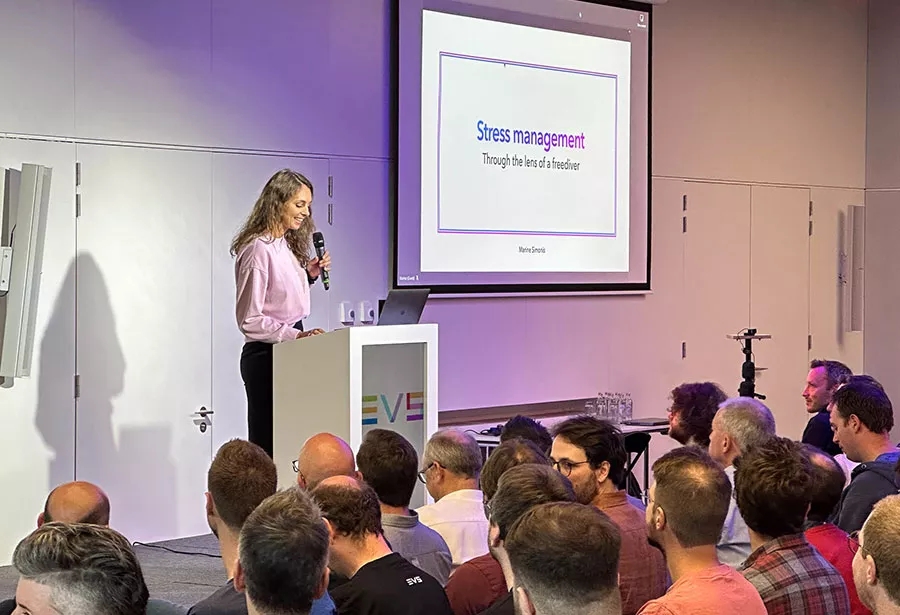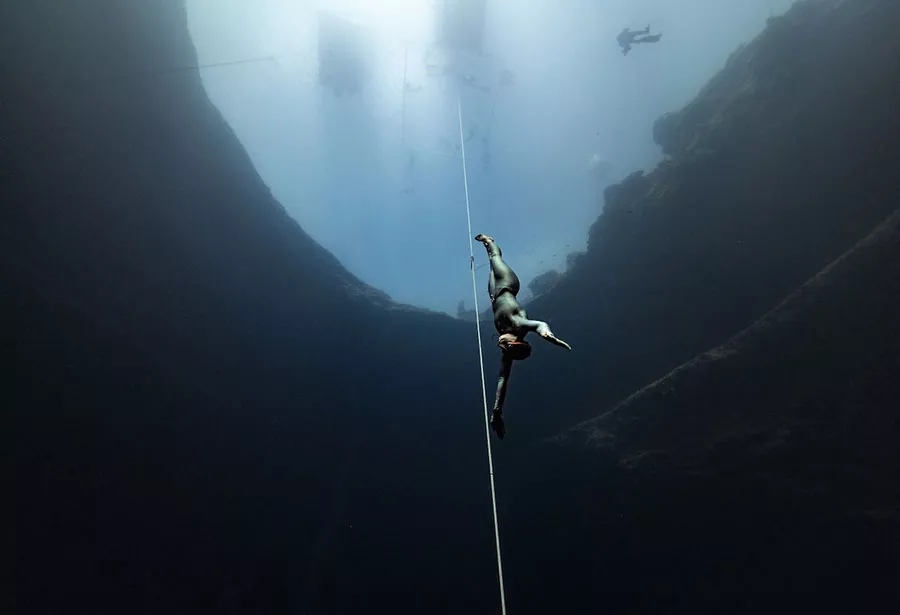Stress management through the lens of a freediver - by Marine Simonis
- 19 October 2023

So...What is stress?
Let's face it, stress is a part of life, especially in the fast-paced world we live in. It's a biological response designed to mobilize energy for fight or flight, a mechanism once crucial for survival in our evolutionary past. But we don’t have to fight mammoths anymore! Nevertheless, the energy mobilized by stress persists, and often manifests as anger. Stress factors can be physical and psychological and when these stressors persist over days, cortisol levels remain elevated, posing potential harm to the body. In contemporary society, chronic stress has become a significant health concern, contributing to a notable increase in burnouts and depressions, as evidenced by a 46% rise over the last 5 years according to INAMI, the national health system institute in Belgium. These statistics underscore the profound impact of stress not only on individuals but also on the overall health of companies.
Short-term stress management strategies
Unfortunately, there is no universal recipe for dealing with stress. Everyone copes with it differently. Short-term stress management revolves around identifying symptoms, such as a racing heart or accelerated breathing, and assessing the situation. When these signs emerge, various techniques can be employed, such as nasal breathing or engaging in physical activity to release the sudden energy outburst. Visualization is another effective method, which allows you to transport yourself to a happier moment. The key here is to try and remember as many details as you possibly can. Visual and auditory focus are additional techniques that I regularly use. By fixating on a single point without shifting your gaze, you immerse yourself in the moment, redirecting your thoughts from stress. Similarly, with sound focus, you try to pick up the ambient sounds, tuning out stressors. While these are valuable quick fixes, it's important to remember that they offer only temporary relief.
Long-term stress management strategies
To truly conquer stress, a sustained, long-term approach is essential. Dedicate an hour a day to activities that switch your brain to 'off' mode. This doesn’t mean watching tv, but rather engaging in activities like meditation or going for a walk. This practice helps prevent your thoughts from spiraling out of control just before bedtime, reducing the risk of insomnia. Communicate openly, make sure you surround yourself with positive social interactions, and, most importantly, be kind to yourself. Tackle one stressor at a time, embrace discipline, and make lifestyle adjustments to improve your sleep and your overall well-being. Make sure you engage in physical activities. Whether it’s a walk, run, or playing with your kids— whatever gets those endorphins flowing. It's not just about feeling better in your skin; it's about better overall health.

Breathing exercises:
insights from freediving
As a freediver, I've learned a lot about different types of breathing techniques for stress relief. Adopting diaphragmatic breathing promotes more efficient gas exchanges, which eases the workload on the heart and activates the relaxation nervous system. Another one I like to use is cardiac coherence, also known as 365. This involves inhaling for five seconds, and exhaling for five seconds. You do this three times a day for five minutes, resulting in six breaths per minute. This practice has the dual effect of decreasing cortisol levels and increasing oxytocin, stabilizing blood pressure. Box breathing is another effective technique. where you inhale for four seconds, hold for four seconds, exhale for four seconds, and maintain the breath for four seconds. This square breathing pattern is sustained for four minutes. These exercises offer incredible benefits. While they may not bring radical changes overnight, incorporating them gradually into your routine can make a difference in the long run.
Marine Simonis is a Belgian freediving champion. Within just five years of practice, Marine has already excelled in major competitions including the World Championships and Vertical Blue, securing a remarkable 4th place in both. Her two-year collaboration with EVS extends beyond sponsorship; she actively fulfills the role of ESG ambassador, addressing environmental and societal issues that are close to her heart. Outside the water, Marine is also a physiotherapist, which gives her a good understanding of how her body works and helps her throughout her journey.

Marine Simonis (LinkedIn)
Belgian freediver and ESG ambassador for EVS